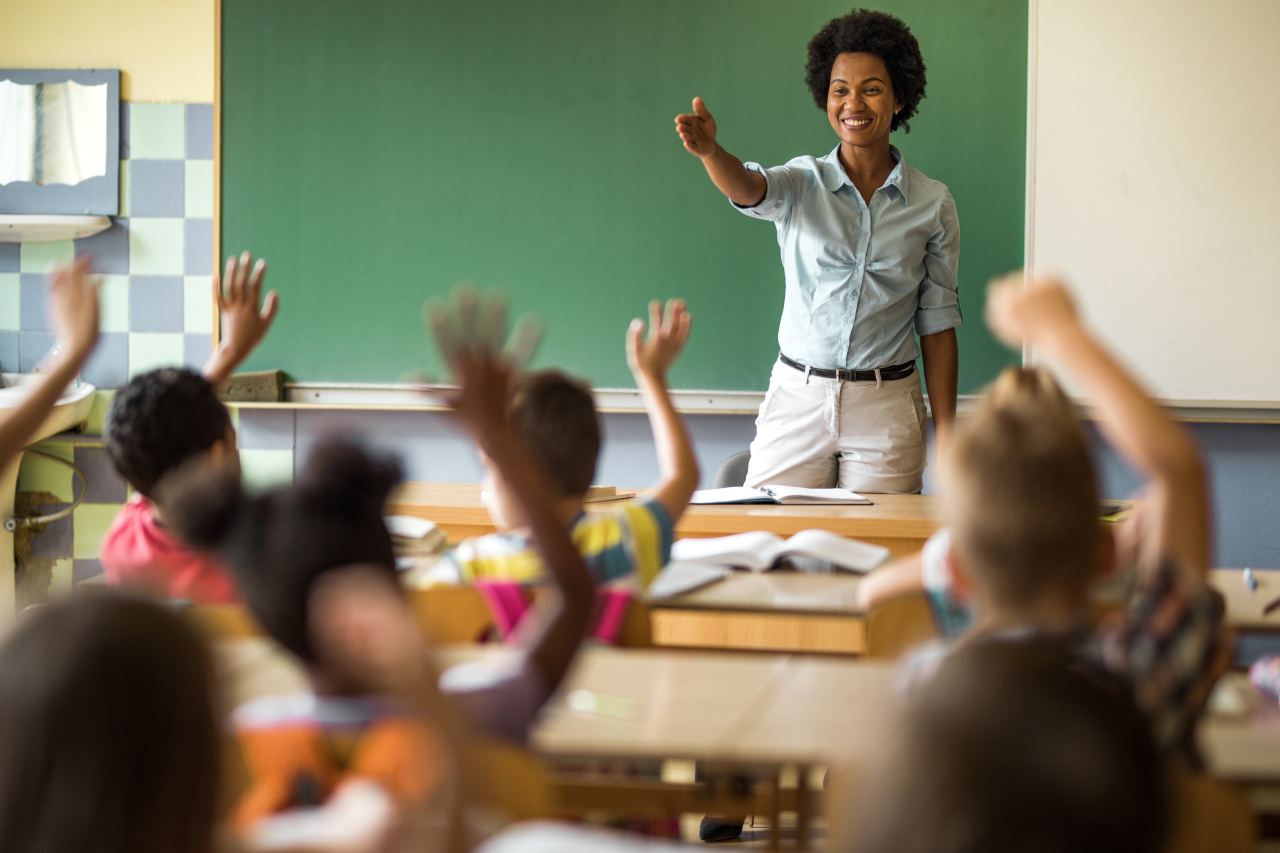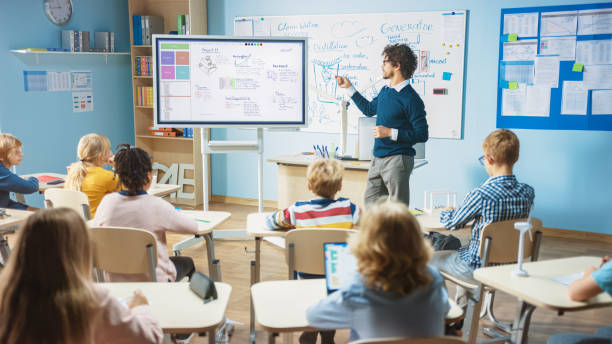Accelerate Learning with Primary Science Tuition Singapore for Young Minds
Accelerate Learning with Primary Science Tuition Singapore for Young Minds
Blog Article
Checking Out the Various Training Methods in Key Scientific Research Education And Learning Today
Inquiry-based discovering, hands-on experiments, and the integration of technology are redefining exactly how educators involve young minds. Additionally, joint techniques and distinguished guideline are being employed to provide to the diverse requirements of pupils, enhancing both engagement and understanding.
Inquiry-Based Knowing
Inquiry-Based Understanding (IBL) is a pedagogical approach that motivates pupils to explore scientific principles through doubting, examination, and hands-on testing. This technique emphasizes the function of trainees as energetic individuals in their knowing, advertising vital reasoning and analytic skills. By engaging with real-world inquiries, pupils come to be motivated and curious, which improves their understanding of clinical principles.
In IBL, educators function as facilitators, leading pupils as they navigate their questions as opposed to providing info straight. This student-centered method permits distinction, accommodating various discovering rates and designs. Pupils establish abilities in formulating hypotheses, creating experiments, and analyzing data, which are vital for scientific proficiency.
Furthermore, IBL promotes collaboration amongst students, encouraging them to share findings and concepts. This cumulative questions advertises social abilities and a feeling of community within the class. In addition, the procedure of inquiry urges strength, as trainees find out to welcome failing as a stepping stone towards understanding.
Hands-On Experiments
Hands-on experiments are an important component of reliable science education and learning, enhancing the concepts of inquiry-based knowing. These experiments permit students to involve straight with scientific principles, fostering a much deeper understanding through experiential learning. By adjusting materials and observing end results, young learners can grasp abstract theories in substantial methods.
Such tasks promote vital reasoning and analytical abilities, as trainees hypothesize end results, conduct experiments, and examine outcomes. This procedure urges them to ask concerns, improve their understanding, and establish a clinical state of mind. Additionally, hands-on experiments can be customized to diverse discovering styles, ensuring that all students have the chance to involve meaningfully with the content.
In addition, hands-on experiments frequently motivate cooperation amongst peers, advertising teamwork and communication skills. Operating in teams allows trainees to share ideas, talk about findings, and pick up from each other, which enhances their overall academic experience.
Including hands-on experiments right into the primary science educational program not just enhances the finding out environment however likewise cultivates a lifelong rate of interest in scientific research. By proactively joining their education and learning, pupils are most likely to develop an enthusiasm for scientific query that prolongs beyond the classroom.

Modern Technology Assimilation
Integrating technology into primary science education has become progressively necessary in promoting pupil involvement and boosting discovering outcomes. Making use of digital tools, such as interactive simulations, online labs, and educational software application, supplies trainees with opportunities to check out scientific concepts in innovative means. These resources assist in a deeper understanding of complex subjects by enabling students to picture and control variables that would be not practical in a conventional classroom setting.
Moreover, modern technology combination urges individualized discovering experiences. Students can proceed at their very own rate, reviewing challenging principles with multimedia sources, which accommodate different discovering styles. This versatility not only sustains private growth but additionally cultivates a feeling of autonomy in learners.
In addition, modern technology serves as a bridge to real-world scientific research, attaching pupils with present study and expert payments. Access to clinical journals and online databases widens students' perspectives on clinical query and cultivates important thinking abilities.
Collaborative Knowing
Collaborative knowing plays an essential duty in primary scientific research education and learning by fostering team effort and interaction skills among trainees. This strategy encourages students to interact, share knowledge, and involve in problem-solving, which improves their understanding of clinical principles. By joining team activities, trainees discover to verbalize their ideas, listen to varied point of views, and bargain solutions, every one of which are necessary skills in both real-world and academic contexts.

Study indicates that joint learning can bring about boosted inspiration and interaction in scientific research subjects, as pupils locate enjoyment in shared experiences (primary science tuition Singapore). In addition, this approach prepares pupils for future collective undertakings, furnishing them with the skills required for reliable team effort in higher education and learning and professional settings. Eventually, welcoming joint knowing in primary science education can substantially enrich the knowing experience and promote a deeper understanding of scientific query
Set Apart Instruction

Separated direction can show up in numerous methods, such as differing the material, procedures, or products of learning. Teachers may make use of tiered jobs that give varying levels of intricacy, permitting trainees to work at their particular preparedness levels. Additionally, adaptable grouping techniques can promote cooperation among trainees with different capacities, cultivating peer understanding.
Evaluation plays an essential function in this approach, as it notifies instruction and aids instructors understand each trainee's one-of-a-kind requirements. Formative evaluations, such as tests and monitorings, can guide teachers in changing their techniques to improve discovering end results. primary science tuition Singapore. Ultimately, by implementing set apart direction in key science education, teachers can grow a much more effective and fair learning atmosphere, equipping all students to reach their full possibility in understanding clinical sensations
Verdict
In recap, the diverse training strategies in primary science education and learning, including inquiry-based knowing, hands-on experiments, modern technology assimilation, collaborative discovering, and differentiated instruction, collectively add to an extra effective knowing atmosphere. These techniques advertise essential thinking, analytic abilities, and a much deeper understanding of scientific ideas. By carrying out these approaches, instructors can develop interesting and supportive classrooms that address the varied needs of students, ultimately cultivating a long-lasting passion in scientific research and enhancing More Info academic achievement.
Inquiry-Based Learning (IBL) is a pedagogical strategy that urges students to explore clinical principles with doubting, investigation, and hands-on experimentation.Joint understanding plays a crucial function in main scientific research education by fostering teamwork and interaction skills among pupils.Research study suggests that collaborative understanding can lead to boosted motivation and engagement in scientific research subjects, as students locate enjoyment in common experiences.In promoting an inclusive understanding atmosphere, distinguished direction arises as a crucial technique to suit the diverse needs and Recommended Reading capabilities of pupils in main scientific research education. Inevitably, by carrying out differentiated instruction in key science education and learning, teachers can grow a more effective and fair knowing setting, empowering all pupils to reach their full capacity in understanding scientific sensations.
Report this page